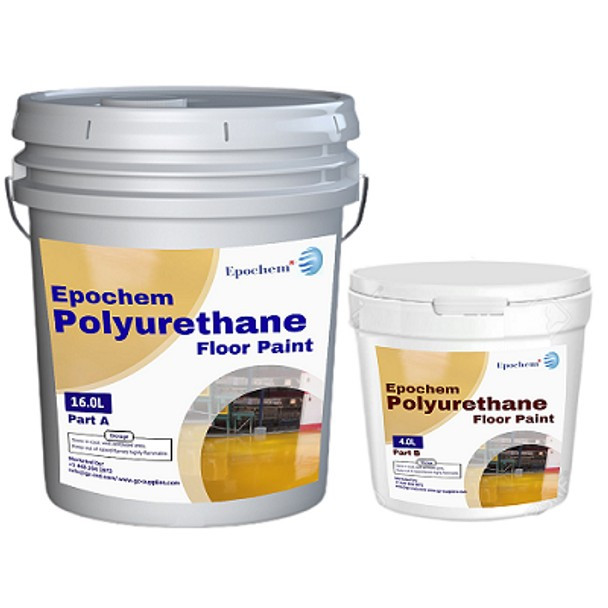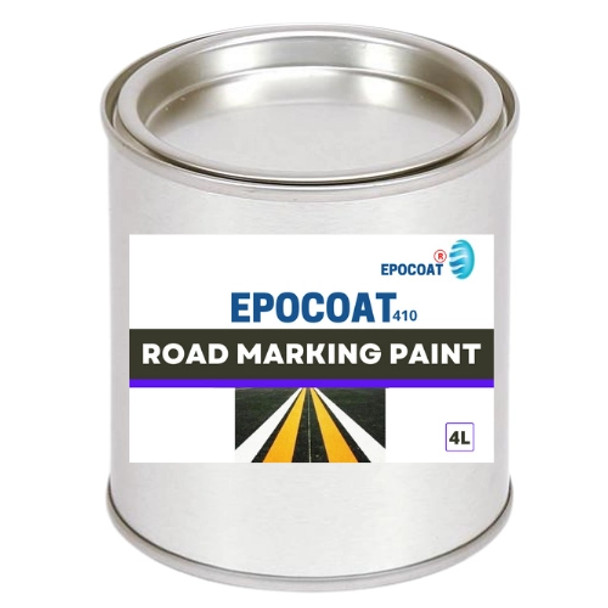The Best Floor Paint for Different Types of Flooring
When it comes to revitalizing your home's flooring, choosing the right floor paint can make all the difference. Whether you're looking to refresh a concrete garage floor, add charm to wooden planks, or transform ceramic tiles, selecting the appropriate floor paint is crucial for achieving durable and attractive results. In this comprehensive guide, you will discover the best floor paint options for various types of flooring materials. We will explore the unique characteristics of each paint type, their ideal applications, and provide expert tips to ensure your floor painting project is a success. By the end of this article, you will be equipped with the knowledge to make an informed decision and breathe new life into your floors.
Choosing the Right Floor Paint for Your Project
Selecting the appropriate floor paint is crucial for achieving durable and attractive results. Consider the following factors to ensure you choose the best option for your specific needs.
Assess Your Surface Type
Before purchasing floor paint, it's essential to identify the material of your floor. Different surfaces require specific paint formulations:
- Concrete: Opt for epoxy or acrylic-based paints designed for concrete.
- Wood: Choose oil-based or latex paints suitable for wooden surfaces.
- Metal: Select paints with rust-inhibiting properties for metal floors.
Understanding your floor's composition will help you narrow down your options and ensure proper adhesion.
Consider Traffic and Usage
Evaluate the level of foot traffic and intended use of the area you're painting. High-traffic zones or areas exposed to heavy equipment require more durable paint options:
- For garages or workshops, choose epoxy-based paints for superior durability.
- In residential spaces, latex or acrylic paints may suffice for moderate traffic.
- For outdoor areas, select paints with UV-resistant properties to prevent fading.
Matching the paint's strength to your floor's usage will extend its lifespan and maintain its appearance.
Evaluate Environmental Factors
Take into account the environmental conditions your floor will face:
- Moisture exposure: Choose waterproof or moisture-resistant paints for bathrooms or basements.
- Temperature fluctuations: Select paints that can withstand expansion and contraction in areas with significant temperature changes.
- Chemical exposure: In industrial settings, opt for chemical-resistant paints to prevent damage from spills or fumes.
By considering these environmental factors, you'll ensure your floor paint can withstand the specific challenges of its location.
 Floor Marking Paint EPOCOAT 408
Floor Marking Paint EPOCOAT 408
Best Floor Paint Options for Concrete Floors
When it comes to enhancing the appearance and durability of your concrete floors, choosing the right paint is crucial. Here are some of the best floor paint options for concrete surfaces, along with their unique features and benefits.
Epoxy-Based Paints
Epoxy-based paints are a popular choice for concrete floors due to their exceptional durability and resistance to chemicals, stains, and abrasion. These paints create a hard, glossy finish that can withstand heavy foot traffic and even vehicular use. You'll find that epoxy paints come in various colors and can be customized with decorative flakes or metallic pigments for a more aesthetically pleasing look.
Acrylic Paints
If you're looking for a more budget-friendly option, acrylic paints are worth considering. These water-based paints are easy to apply and dry quickly, making them ideal for DIY projects. While not as durable as epoxy, acrylic paints still offer good resistance to wear and tear, and they're available in a wide range of colors to suit your preferences.
Polyurethane Coatings
For those seeking maximum protection and longevity, polyurethane coatings are an excellent choice. These paints form a tough, flexible layer that resists scratches, impacts, and UV rays. You'll find that polyurethane coatings are particularly well-suited for outdoor concrete surfaces or areas exposed to harsh conditions.
Textured Paints
If slip resistance is a priority, consider using textured paints for your concrete floors. These specialized paints contain small particles that create a non-slip surface, making them ideal for areas prone to moisture or spills. You'll appreciate the added safety they provide in garage floors, pool decks, or industrial settings.
When selecting a floor paint for your concrete surfaces, consider factors such as durability, ease of application, and the specific requirements of your space. By choosing the right paint, you'll not only enhance the appearance of your concrete floors but also extend their lifespan and functionality.
 Epochem Polyurethane Floor Paint
Epochem Polyurethane Floor Paint
Painting Wood Floors? Use These Floor Paint Types
When it comes to revitalizing your wooden floors, selecting the right paint is crucial. Your choice will impact both the aesthetic appeal and durability of your flooring. Here are the top floor paint types to consider for your wood surfaces.
Oil-Based Floor Paints
Oil-based paints are a classic choice for wood floors. These paints offer excellent durability and a smooth finish that can withstand heavy foot traffic. They penetrate the wood grain effectively, providing long-lasting protection against wear and tear. However, keep in mind that oil-based paints have a longer drying time and emit strong odors during application.
Water-Based Floor Paints
For a more eco-friendly option, consider water-based floor paints. These paints dry faster than their oil-based counterparts and have lower volatile organic compound (VOC) emissions. They're easier to clean up and maintain, making them ideal for busy households. While traditionally less durable than oil-based paints, modern formulations have significantly improved their resilience.
Epoxy Floor Paints
If you're looking for maximum durability, epoxy floor paints are an excellent choice. These two-part coatings create a hard, glossy surface that's resistant to chemicals, stains, and heavy impacts. Epoxy paints are particularly suitable for high-traffic areas or spaces prone to spills. However, they require careful preparation and application for optimal results.
Porch and Patio Floor Paints
Designed specifically for outdoor use, porch and patio floor paints can also be an excellent option for indoor wood floors. These paints are formulated to withstand extreme temperatures, moisture, and UV exposure. They often incorporate anti-slip additives, making them a safe choice for areas prone to wetness.
Remember, regardless of the paint type you choose, proper surface preparation is key to achieving a professional-looking and long-lasting finish on your wood floors.
 Epocoat 410 Road Marking Paint
Epocoat 410 Road Marking Paint
Vinyl and Linoleum Flooring - What Floor Paint Works Best
When it comes to painting vinyl and linoleum flooring, choosing the right paint is crucial for achieving a durable and attractive finish. These synthetic materials require specific types of paint to ensure proper adhesion and longevity.
Selecting the Right Paint
For vinyl and linoleum floors, you should opt for paints specifically formulated for these surfaces. Look for products labeled as "floor paint" or "porch and floor enamel." These paints are designed to withstand foot traffic, cleaning, and the unique properties of vinyl and linoleum.
Epoxy-based paints are an excellent choice for these flooring types. They offer superior durability, resistance to chemicals and stains, and can withstand heavy foot traffic. Two-part epoxy paints, while more challenging to apply, provide the most robust finish.
Preparation is Key
Before applying paint, proper preparation is essential. You'll need to thoroughly clean the floor, removing all dirt, grease, and wax. Sanding the surface lightly will help the paint adhere better. Be sure to repair any damage or fill in gaps before painting.
Always apply a primer designed for vinyl or linoleum before the paint. This step ensures better adhesion and a more even finish. Choose a primer compatible with your selected paint for optimal results.
Application Tips
When applying paint to vinyl or linoleum floors, use thin, even coats. Multiple thin layers will adhere better and last longer than one thick coat. Allow each layer to dry completely before applying the next.
For best results, use a foam roller or a high-quality brush designed for smooth surfaces. This will help you achieve an even finish without visible brush strokes or roller marks.
Remember, while painting can refresh the look of your vinyl or linoleum floor, it's not a permanent solution. The paint will eventually wear off in high-traffic areas, requiring touch-ups or repainting.
 EPOCHEM 304/404 Epoxy Floor Sealers
EPOCHEM 304/404 Epoxy Floor Sealers
Best Floor Paint Options for Various Flooring Types

Read more: Floor Paint Color Options: How to Choose the Perfect Shade
Frequently Asked Questions About Floor Paint
What is floor paint?
Floor paint is a specialized coating designed to withstand heavy foot traffic, impacts, and abrasions. It's formulated to adhere strongly to various flooring materials, providing both protection and aesthetic enhancement. Unlike regular wall paint, floor paint contains harder resins and often incorporates slip-resistant additives for safety.
How long does floor paint last?
The longevity of floor paint depends on several factors, including the quality of the paint, surface preparation, and the level of traffic. In residential settings, a well-applied floor paint can last 3-5 years before needing touch-ups. High-traffic commercial areas may require more frequent repainting. Regular maintenance, such as cleaning and occasional resealing, can extend the life of your painted floor.
Can I paint over existing floor paint?
Yes, you can paint over existing floor paint, but proper preparation is crucial. You'll need to clean the surface thoroughly, sand it to create a good bonding surface, and repair any damage. It's important to ensure the new paint is compatible with the existing coating. If the old paint is peeling or in poor condition, it's best to remove it completely before applying a new coat.
Is floor paint slip-resistant?
Many floor paints come with built-in slip-resistant properties. However, for areas that require extra traction, such as garage floors or outdoor patios, you can add anti-slip additives to the paint or apply a textured topcoat. Always check the manufacturer's recommendations for the best slip-resistant options for your specific application.
Related Article
Types of flooring materials
The Best Floor Paint for High-Traffic Areas
The Science of Floor Paint: How it Works and What to Expect
Conclusion
As you consider the best floor paint for your project, remember that proper preparation and application are just as important as choosing the right product. Take time to thoroughly clean, repair, and prime your surface before painting. Follow the manufacturer's instructions carefully for optimal results. While initial cost is a factor, investing in a high-quality paint suited to your specific flooring type will pay off with improved durability and appearance over time. With the right paint and technique, you can transform your floors and enhance the overall look of any space in your home or business. Your rejuvenated floors will provide a beautiful foundation for years to come.
Ready to Transform Your Floors? Contact Us for High-Quality Floor Paint Solutions! Whether you're looking for durable industrial coatings or stylish residential finishes, we’ve got the perfect floor paint for you.
Recent Posts
-
What is the Difference Between 11KV and 33KV Power Transformer Lines?
Introduction As an electrical engineer or utility professional, you likely handle a variet …Apr 10, 2025 -
Top 10 Industrial Hubs in Nigeria: A Guide for Suppliers and Manufacturers
Introduction Nigeria, Africa's largest economy, boasts a diverse and rapidly growing industrial …Apr 10, 2025 -
Which Generator is Best for Home use in Nigeria 2025
Unstable power supply is a reality many Nigerian households contend with daily. Whether it&rsqu …Apr 09, 2025









